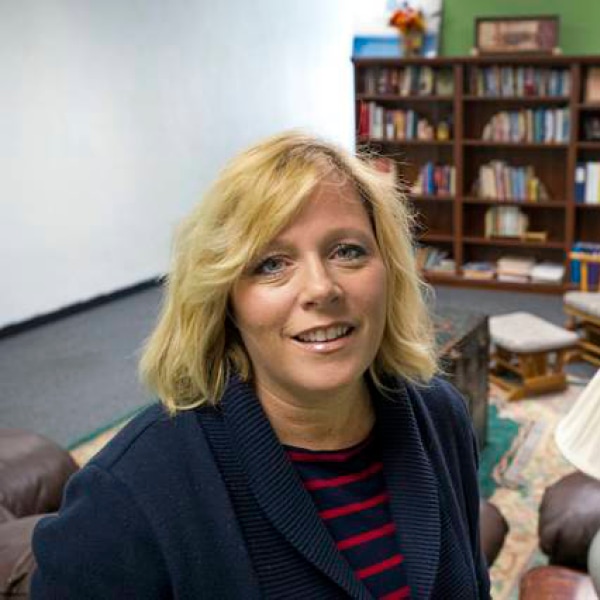Dawn Henessey’s goal is to spread hope and help others. She must be doing something right because she was nominated by multiple people to be a Difference Maker! The organization she founded, Faith Forward Inc., offers a number of different programs and services to assist individuals and families that are affected by addiction. Thank you for all you do, Dawn!
1. Tell us about yourself and (if applicable) your organization? Where are you located and what is some of the work that you do?
I am the Founder and Executive Director of Faith Forward Inc. Our programs include Angel Arms Infant and Children Recovery Homes, Project Stand, counseling services, and support groups. I am a Mental Health, Family and Children, and Addiction therapist.
I have more than 20 years of experience in counseling and nonprofit development. I guess you can say I’m an established social entrepreneur! I have a minister’s license, and I’m also licensed in faith-based counseling while specializing in addiction.
My passion is to follow the call on my life, which is to continue sharing hope with others. I have a master’s degree in Counseling and a Master’s in Christian Counseling, and I am currently working on a Ph.D. in Marriage and Family Therapy – so I’m very busy!
Through life experience and some hard times, I went back to school and completed additional degrees in order to pursue my passion to help others. During that time, I met my husband Rick who also had a passion to help others because of his own experience. Rick has been in recovery for substance use for close to 20 years. He dedicated his life to helping those in recovery or who have a desire for recovery. Rick and I work together assisting families, children, and the individuals in any way we can. In addition, we had the privilege to take in an infant with neonatal abstinence syndrome (NAS), and then 5 years later adopt him! Through this experience, Angel Arms was created! Angel Arms is dedicated to helping children and families in recovery.
All the services at Faith Forward/Angel Arms are free. We run on donations. There is no paid staff. All of us are volunteers. We serve Westmoreland Co. and all those in need. We serve people experiencing homelessness, who have a substance use disorder or mental health issues, and anyone in need of encouragement. In addition, we regularly give back to our community with outreach and community services.
2. What kinds of problems have you seen in your community as a result of the opioid epidemic?
We have witnessed the overwhelming effects on families, individuals, and children. There is a lack of resources and understanding about addiction in the community. We hope to change the stigma and bring awareness and education. With the opioid epidemic, there has been an increase in the number of babies born to mothers that use drugs, and families are not sure where to turn. The poverty rate is rising, and people lose hope. The community needs to have a better understanding in order to provide sufficient support and resources. Breaking that stigma is challenging.
3. What have you done to help with the problems your community (or your organization) faces?
We, as an organization, have regular community events and awareness meetings, such as Project Stand (we have had 7 so far-“community Standing Against Addiction”—averaging 1200 in attendance), Random Gifts of Kindness, educational meetings, and community projects. We have always had an overwhelming response from our community. Some, but not all, media coverage is on our website.
4. What motivated you to try and help people affected by addiction?
I was personally affected as a family member of someone with addiction. I saw how it can have destructive results and the lack of support for the family. Statistics show that 1 out of 4 children are living in active addicted homes where at least one parent is using. All family members feel the effects of addiction. Rick has a passion due to his own recovery experience and the hard work it takes to remain in recovery.
5. What are some of the best parts about helping people who have been affected by the opioid epidemic?
As a counselor, I say that we need to be each person’s greatest “cheerleader”. We need to support, encourage, and motivate. If they have some bumps in the road, we are still there for them cheering them on. It is great to build connections, build relationships, and be a voice for those who need it.
6. Is there a particular situation that sticks out in your memory related to the ways you’ve tried to make a difference?
I believe that building connections, taking time to listen, and be invested is the first step. Everyone can listen, everyone can care!! I do believe because of the lack of understanding, many in the community do not know how to be involved or even care. We hope to help with this. Seeing all people and children who are affected by substance use as people, people with a story, a family, and a future—-not just a client number or consumer.
7. Have you used PA Stop materials and resources to help you make positive changes in your community? Are there any other resources that you’ve turned to for guidance?
Yes, we love the material and use it regularly! We have used the information in our training, groups, and community events among other times when needed. I am currently trying to develop additional information on children living in addiction and NAS(Neo-Natal Abstinence Syndrome) and other substance-related issues children may be born with. I have been developing a curriculum to assist in training and education. Also, a program to educate birth mothers, caregivers, and grandparents about children/infants that may be born with substances in their bodies.



